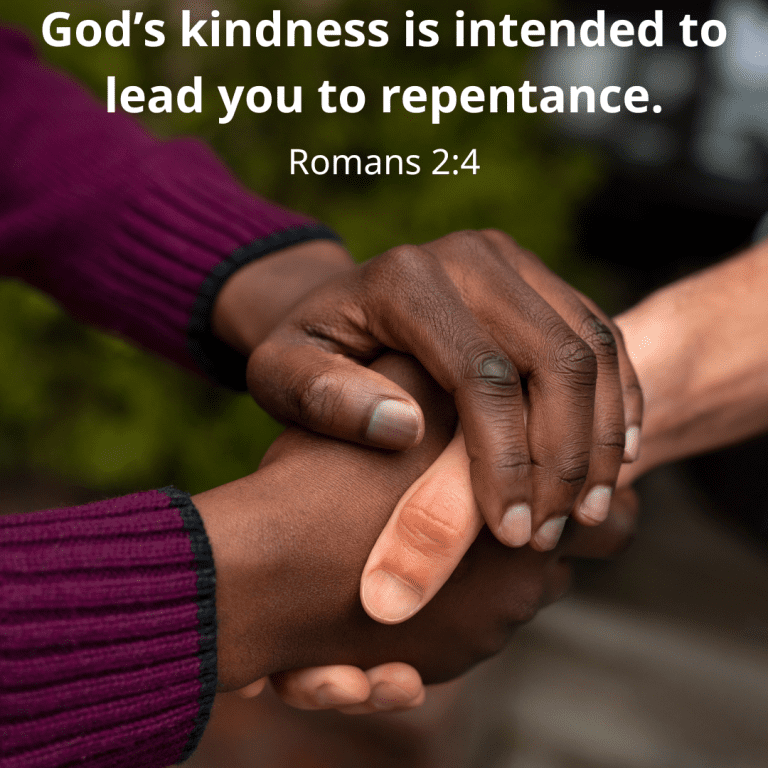
A Fresh Look for a Generation Seeking Real Faith
You’ve probably seen the list on a church wall, a t-shirt, or a Pinterest post:
Love. Joy. Peace. Patience. Kindness. Goodness. Faithfulness. Gentleness. Self-Control.
That’s the fruit of the Spirit (Galatians 5:22–23).
But here’s the thing: these aren’t just “nice Christian traits” you try to copy. They’re evidence that something supernatural is growing inside you, something the Holy Spirit is actively forming. Let’s break them down one by one in a way that speaks to real life.
1. LOVE
“Dear children, let us not love with words or speech but with actions and in truth.” – 1 John 3:18
We live in a world where love is often performative. It’s in captions and emojis, but not always in action. The Holy Spirit teaches us to love people even when they’re difficult, unlovable, or don’t benefit us.
Real love:
- Listens before speaking
- Forgives even when it hurts
- Stays when it’s easier to walk away
2. JOY
“Though you have not seen him, you love him… you are filled with an inexpressible and glorious joy.” – 1 Peter 1:8
Joy is different from happiness. It’s not tied to a vibe, a relationship, or a goal. Joy is deep and steady.
You can be battling anxiety and still carry joy. You can be broke and still feel joy. Why? Because joy is rooted in who God is, not what life looks like.
3. PEACE
“You will keep in perfect peace those whose minds are steadfast, because they trust in you.” – Isaiah 26:3
Peace isn’t passive. It’s fierce trust in the middle of chaos.
For young people constantly hit with bad news, mental pressure, and overthinking, peace feels rare. But the Holy Spirit anchors us when the world spins. Peace shows up in how we handle pressure, stay grounded in prayer, and choose surrender over control.
4. PATIENCE
“Be completely humble and gentle; be patient, bearing with one another in love.” – Ephesians 4:2
We’re an instant generation, streaming, deliveries, dating apps. We’re wired for now.
But spiritual maturity grows in the slow seasons. Patience is learning to:
- Wait without whining
- Love people who don’t “get it” yet
- Trust God’s timeline, not your own
It’s not natural, but it’s powerful and deeply needed in a culture obsessed with speed.
5. KINDNESS
“God’s kindness is intended to lead you to repentance.” – Romans 2:4
Kindness isn’t just random acts. It’s intentional compassion.
It’s DM-ing someone just to check in.
It’s being gentle when you have every reason to be cold.
It’s choosing not to clap back even when you could go viral.
Kindness is powerful because it reflects the kindness God showed us.
6. GOODNESS
“Do not be overcome by evil, but overcome evil with good.” – Romans 12:21
Goodness is about integrity when no one’s watching.
It’s not about being a “good person”, it’s about choosing what’s right, even when it costs you.
It’s:
- Being honest when you could cut corners
- Calling out injustice, even if it’s unpopular
- Living with purity in a world that celebrates compromise
7. FAITHFULNESS
“His master replied, ‘Well done, good and faithful servant!’” – Matthew 25:21
This one’s about showing up in relationships, in responsibilities, and in your walk with God.
Faithfulness says:
- “I’ll keep praying, even when I feel nothing.”
- “I’ll show up for my friends when it’s not convenient.”
- “I’ll follow through on what I said.”
In a culture that glorifies jumping ship, faithfulness is countercultural—and deeply beautiful.
8. GENTLENESS
“Let your gentleness be evident to all.” – Philippians 4:5
Gentleness isn’t weakness. It’s controlled strength.
In a world where loud = power, the Spirit teaches us a quieter strength.
Gentleness shows up when:
- You disagree without disrespecting
- You lead without dominating
- You correct without crushing
Jesus was gentle with the broken and we’re called to be like Him.
9. SELF-CONTROL
“Like a city whose walls are broken through is a person who lacks self-control.” – Proverbs 25:28
Without self-control, everything else crumbles.
It’s the Spirit saying:
- “Don’t send that text.”
- “Pause before you scroll.”
- “Say no when you know it’s not worth it.”
This fruit guards your peace, protects your witness, and empowers you to make decisions that align with your purpose not your impulse.
Final Thoughts: Fruit Takes Time
You don’t become a walking, talking Fruit Basket overnight.
But if you stay rooted in Jesus, the Holy Spirit will grow this fruit in you gradually, powerfully, and authentically.
You might not see it every day. But others will.
And in a world craving something real, the Spirit’s fruit is the loudest quiet message you’ll ever carry.
Ask Yourself:
- Which fruit comes easiest for me?
- Which one is God stretching in me right now?
- How can I lean into the Spirit more today?
Next Step:
If you’re serious about growth, start a “Fruit Check” journal every week, reflect on one fruit and ask:
“How did I live this out or not this week?”
Spiritual growth isn’t about perfection. It’s about progress. And you don’t walk it alone, the Spirit walks with you.

In a world that often leaves us searching for belonging and questioning our identity, the Bible offers profound insights into who we are and where we truly belong. These seven Bible verses about belonging highlight the unshakable foundation of our identity in Christ and the sense of belonging we find in God’s family.
1. Ephesians 2:19
“Consequently, you are no longer foreigners and strangers, but fellow citizens with God’s people and also members of his household.”
Through Christ, you are no longer outsiders. Instead, you are integrated into God’s family as full members.
2. 1 Peter 2:9
“But you are a chosen people, a royal priesthood, a holy nation, God’s special possession, that you may declare the praises of him who called you out of darkness into his wonderful light.”
You are God’s own people, set apart to reflect His light in the world. It’s a compelling reminder of our unique identity and purpose.
3. Romans 8:16
“The Spirit himself testifies with our spirit that we are God’s children.”
The familial connection between you and God not only affirms your identity but also assures of your inheritance and future glory with Christ.
4. Galatians 3:28
There is neither Jew nor Gentile, neither slave nor free, nor is there male and female, for you are all one in Christ Jesus.”
Regardless of your backgrounds or social status, you all belong to God’s family through faith in Jesus.
5. 1 John 3:1
“See what great love the Father has lavished on us, that we should be called children of God! And that is what we are! The reason the world does not know us is that it did not know him.”
God has shown His love by calling you His children. You therefore belong to Him.
6. Colossians 3:3
“For you died, and your life is now hidden with Christ in God.”
Your old identity is gone, and your new life is secure in Christ. This hidden life in God provides a stable and eternal sense of belonging and identity, rooted in Christ.
7. Jeremiah 1:5
“Before I formed you in the womb I knew you, before you were born I set you apart; I appointed you as a prophet to the nations.”
Your identity and purpose are known to God even before birth. It’s a powerful reminder that you belong to Him and are created with intention and love.
Read more about our identity in Christ.

Addictions come in many shapes and forms, whether it’s lust, alcohol, substances, gambling, gaming, or even excessive use of your mobile phone and social media. There is professional help to get as well as counselling from your priest or pastor.
Also, read the Bible and lay your addiction before God in prayer. Here are some passages from the Word of God to reflect upon.
- James 1:14-15 But each person is tempted when he is lured and enticed by his own desire. Then desire when it has conceived gives birth to sin, and sin when it is fully grown brings forth death.
We all have weaknesses within us that can make us fall and lead to an addiction. Acknowledging this, and admitting that you struggle with addiction is an important step to be free from it.
- 1 John 2:16 For all that is in the world—the desires of the flesh and the desires of the eyes and pride of life—is not from the Father but is from the world.
Addictions don’t come from God, but from the world and our desires, lusts and pride. We can rely on God wanting us to be free from any addiction.
- 1 Corinthians 10:13 No temptation has overtaken you that is not common to man. God is faithful, and he will not let you be tempted beyond your ability, but with the temptation he will also provide the way of escape, that you may be able to endure it.
You may feel that you can’t break your addiction. But the Bible tells us that God can. God will provide the way of escape. Turn to God, turn from your addiction. Let God fill you with his presence.
- 1 Corinthians 6:12 “All things are lawful for me,” but not all things are helpful. “All things are lawful for me,” but I will not be dominated by anything.
Addiction is many times when something takes control over you. Those things that are not helpful in your life and dominate your thoughts and desires you may need to cut out of your life.
- 1 Peter 2:11 Beloved, I urge you as sojourners and exiles to abstain from the passions of the flesh, which wage war against your soul.
Addictions come from this world and not from God. In the end, addictions replace God as the number one in our lives. It’s not just about addictions, but also about our souls.
- Matthew 6:13 And lead us not into temptation, but deliver us from evil.
Lay your struggles before God. Ask for God’s protection and deliverance.
- John 8:36 So if the Son sets you free, you will be free indeed.
This is the promise of Jesus Christ, that when he sets us free, it is real freedom.
This article is not intended as a replacement for medical or therapeutic help or treatment for addiction, but a complement and inspiration to those who battle addiction.

What is prayer?
Just as how we communicate in order to keep our relations intact, we should also be in constant touch with our Father in Heaven. One way of doing that is through prayer. Prayer is the communication between us and God. We can boldly go to Him in prayer and tell him how we feel, what we desire, seek guidance etc. Prayer is giving our attention to God in a two-way spiritual relationship where we talk to God and also listen to Him. Prayer is like a child’s conversation with their father. It is natural for a child to ask his father for the things they need, or to ask for advice or guidance.
Who should pray?
Prayer is an open invitation extended to everyone, regardless of their circumstances, background, or status. The Bible is explicit in its encouragement for all people to engage in prayer. In 1 Thessalonians 5:16-18 (NIV), the Apostle Paul encourages believers by saying, “Rejoice always, pray continually, give thanks in all circumstances; for this is God’s will for you in Christ Jesus.” This passage conveys that prayer is not limited to a select few but is a continuous and open invitation for all believers.
So to answer the question, “YOU” should pray.
Why should you pray?
When you receive Christ into your heart, you become a child of God and have the privilege of talking to Him in prayer at any time about anything. The Christian life is a personal relationship to God through Jesus Christ. And best of all, it is a relationship that will last for all eternity.
There are many promises in God’s Word to encourage us to pray, such as: “He shall call upon me and I will answer him: I will be with him in trouble; I will deliver him, and honor him” (Psalm 91:15); “And it shall come to pass that before they call, I will answer; and while they are yet speaking, I will hear” (Isaiah 65:24); “Ask and it will be given to you; seek and you will find; knock and the door will be opened to you” (Matthew 7:7). These Scriptures assure us that God hears and answers prayer.
When should you pray?
You should pray at all times.
1 Thessalonians 5 v 17 “Pray without ceasing”.
The Bible is clear that we should pray always–And we should. However, there are some circumstances in our lives that should trigger immediate prayer. Here are examples of circumstances that should trigger prayer.
1. When you are happy.
“Is any one of you in trouble? He should pray. Is anyone happy? Let him sing songs of praise.” James 1:13
2. When you are tempted. “And lead us not into temptation, but deliver us from evil” (Matt. 6:13).
“Keep watching and praying that you may not enter into temptation; the spirit is willing, but the flesh is weak.” Matthew 26:41
3. When you are worried. The Bible teaches us to cast their burdens on the Lord.
Paul wrote, “Be careful for nothing; but in every thing by prayer and supplication with thanksgiving let your requests be made known unto God” (Phil. 4:6).
4. When you have a great decision to make or problem to solve: The Bible teaches that,” If any of you lacks wisdom, you should ask God, who gives generously to all without finding fault, and it will be given to you.” (James. 1:5).
5. When you are discouraged: In living the Christian life, you should not quit. You need to turn to God in prayer. Jesus said,“Men ought always to pray, and not to faint” (Lk. 18:1).Paul said, “Praying always with all prayer and supplication in the Spirit, and watching thereunto with all perseverance and supplication for all saints” (Ephesians. 6:18). When you are discouraged, ask God to send you some help in the form of other Christians.
6. When you have sinned.: “If we confess our sins, he is faithful and just to forgive us our sins, and to cleanse us from all unrighteousness” (1John: 1:7-9).
Where should you pray?
This question has a lot of different answers, and thank goodness it does. God hears your prayers no matter where you’re praying. In the Bible, people prayed in houses, in closets, on mountaintops, in deserts, late at night, early in the morning, before meals, and after battles. So maybe it doesn’t really matter where your body is during prayer and at what time you pray. Instead, it’s about where your heart is when you pray. Any time you want or need to talk with God, that’s when you should pray. Any place you need to feel the influence of His love, that’s where you should pray. You don’t have to wait for the perfect time or place (or the perfect you). Just pray. God will hear you.

Hurt can leave a deep wound, leaving you with anger, resentment, and a desire for justice. While these emotions are understandable, clinging to them only poisons your soul and hinders your healing. Forgiveness offers a path forward, a way to release yourself from the burden of bitterness and embrace peace.
But how do you forgive someone who has deeply hurt you? The Bible offers wisdom and guidance on this difficult journey. Here are 5 verses to help you navigate the path of forgiveness:
- Matthew 6:14-15:
“For if you forgive other people when they sin against you, your heavenly Father will also forgive you. But if you do not forgive others their sins, your Father will not forgive your sins.”
This verse highlights the link between your forgiveness of others and God’s forgiveness of you. Holding onto resentment hinders God’s grace in your life. Choosing to forgive, however difficult, opens you up to the blessings of God’s own forgiveness.
2. Ephesians 4:31-32:
“Let all bitterness and wrath and anger and clamor and slander be put away from you, along with all malice. Be kind to one another, tenderhearted, forgiving one another, as God in Christ forgave you.”
This verse calls you to actively remove negativity and negativity from your heart. It encourages kindness, compassion, and a willingness to forgive just as God has forgiven you. This deliberate act of replacing bitterness with kindness sets you on the path to healing.
3. Colossians 3:13:
“Bear with each other and forgive one another if any of you has a grievance against someone. Forgive as the Lord forgave you.”
This verse emphasizes patience and understanding. It reminds you that everyone makes mistakes and that forgiveness is a choice you make, not something you feel obligated to do. Remember God’s forgiveness towards you, and let it inspire you to extend the same grace to others.
4. Luke 6:37:
“Judge not, and you will not be judged; condemn not, and you will not be condemned; forgive, and you will be forgiven.”
This verse focuses on the reciprocal nature of forgiveness. By releasing others from their mistakes, you free yourself from the burden of judgment and open yourself to receiving forgiveness for your own shortcomings. Remember, forgiveness is not about condoning the hurt, but about choosing to let go and move forward.
5. 1 John 1:9:
“If we confess our sins, he is faithful and just and will forgive us our sins and purify us from all unrighteousness.”
This verse reminds you that forgiveness starts with acknowledging your own need for it. By confessing your own shortcomings and seeking God’s forgiveness, you open your heart to the power of forgiveness in your own life. This self-reflection allows you to practice the forgiveness you extend to others.
In conclusion, remember, forgiveness is a journey, not a destination. It takes time, patience, and a commitment to letting go. But the rewards are immeasurable. By following the guidance of these Bible verses, you can find the strength to forgive, release yourself from the grip of hurt, and experience the abundant peace and joy that comes with it.

Forgiving when hurting
Hurt can leave a deep wound, leaving you with anger, resentment, and a desire for justice. While these emotions are understandable, clinging to them only poisons your soul and hinders your healing. Forgiveness offers a path forward, a way to release yourself from the burden of bitterness and embrace peace.

Hurt can leave a deep wound, leaving you with anger, resentment, and a desire for justice. While these emotions are understandable, clinging to them only poisons your soul and hinders your healing. Forgiveness offers a path forward, a way to release yourself from the burden of bitterness and embrace peace.
